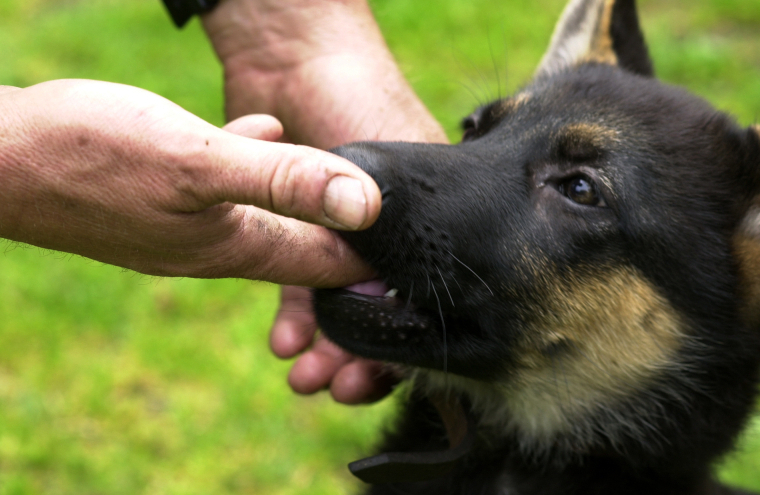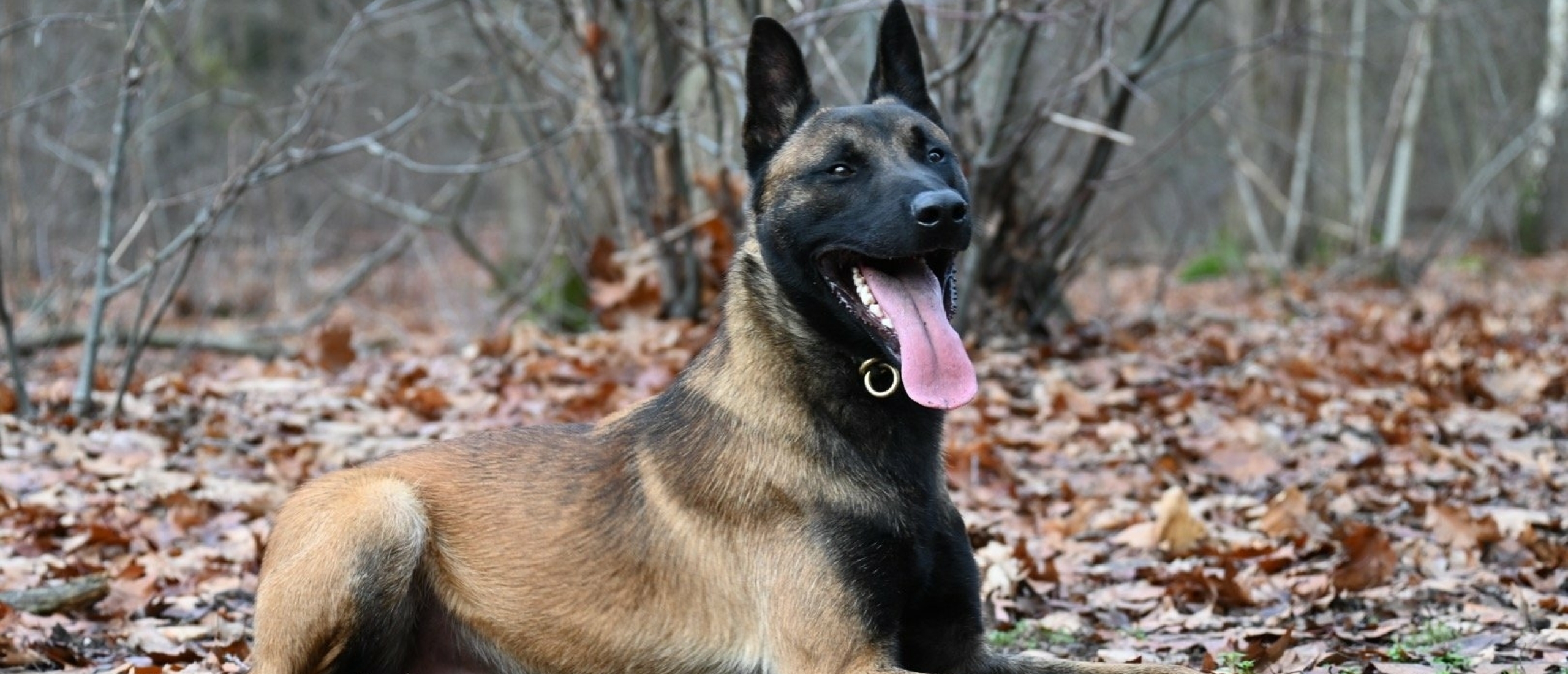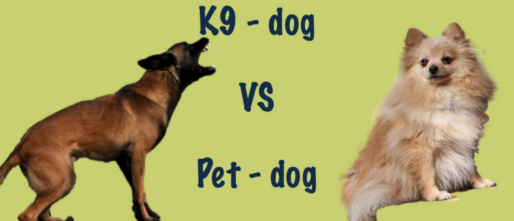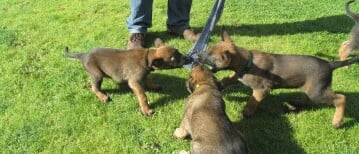I really don't know what to do with our dog anymore!
"My dog is 6 years old and always attacks other dogs while walking."
"I have a 2 year old dog who is very dominant and growls at us and sometimes even bites."
"My dog is very anxious and has no self-confidence at all, because something happened in the past."
This is just some of the many questions and comments we receive daily. People contact us and are often very desperate because they have already tried everything with their dog, without results. They see us as the specialist and ask for our help in solving their problems. Often we can help these people with a few tips. But there are also cases where we cannot always do this, or where we can but would rather not. I will explain why this is so.
Shape the dog for the rest of its life
When we get a new dog, we often choose a puppy over an older dog. We do this not only because puppies learn very quickly, but more importantly because it allows you to educate and shape the puppy. We believe that a puppy in the first 4 to 5 months of its life is formed for the rest of its life. It is therefore very important to pay much attention to socializing during this period. Everything is new for the puppy and he must experience everything and discover the world.
This puppy will first be socialized in the garden without too many temptations
Unwanted behavior is also part of it. Such as biting the leash, hands or feet, jumping up against people or children, and eating all kinds of things on the street, such as poop or food scraps. Every puppy shows undesirable behavior and certainly also our puppies who are often picked for a lot of loot drive or dominance. However, we make sure that these behaviors do not develop into problem behaviors and by doing so we avoid having to heavily correct our dogs in the future.
Give the dog clarity from the start
From the first day the puppy is with us, we are immediately clear about what is desired and undesired behavior. We first teach the puppy the meaning of "Good boy/girl, well done" and "No". This allows us to communicate with the puppy and indicate what he can and cannot do. In the first days of course, the puppy does not yet know this and therefore we make sure that we do not seek out the undesirable behavior at first, but rather prevent it. When the meaning of the commands is clear to the puppy we will look for the unwanted behaviour.
We always do this by using the retractable leash during socializing and walking. Almost every puppy will bite the leash at some point. This is something we do not want and therefore we correct this directly by saying "no" to the pup. Sometimes the pup lets go then already, but often this is not the case and we take the line with our hands from the mouth of the pup. Directly at that moment the pup hears "good boy/girl" and he is stroked and confirmed that this is the behaviour we do want to see. If necessary we can offer the pup an alternative in which it can bite.
This puppy bites the leash, but is released in a calm manner.
The tail continues to wag and the pup is offered an alternative in which it is allowed to bite.
We also apply this same principle when the pup bites our pants. The pup hears "no" and is then detached from the pants. Again, it will take more effort to release a feisty pup. It is important then to build up the correction quietly and carefully. For example by pushing a finger in the mouth of the pup. Just as long as the pup lets go and the unwanted behavior stops. At that moment the pup hears directly "good boy/girl" again and he gets possibly an alternative to bite. The negative, is thus directly converted into something positive for the pup.
Thus we can mention many examples, but the principle remains the same. By making it clear to the puppy at a young age what is and what is not allowed, we prevent undesired behavior from developing. The puppy is no longer busy with it and therefore does not need to be corrected.
The undesirable behavior is already too far developed
This brings us exactly to the point, where it almost always goes wrong with problem behavior of dogs. These dogs are often not made clear at a young age, what is and is not allowed. In the first year they may for example do anything because they are still small or because people think that you should not correct a dog in the first year, or even never correct. Because of this, the dog will find this behavior normal and develop it further and further. Conditioned behavior develops.
When this behavior is developed to the point that it becomes a problem behavior, it is often already too late to solve it easily. You will then have to correct your dog much harder to achieve your goal. The dog has always been allowed to do something and suddenly he is not allowed anymore and he will be punished for this.
 This puppy bites the fingers. Now this doesn't hurt that much, but it will later when the dog gets bigger.
This puppy bites the fingers. Now this doesn't hurt that much, but it will later when the dog gets bigger.
We absolutely disagree and think this is an unfair way to train. You cannot suddenly punish and correct a dog for something he was allowed to do before. That is why we often choose to give people honest advice on what they can do, but we are not going to train these dogs ourselves or heavily correct them because we do not think this is fair.
Our dogs do not develop problem behavior
So we ourselves do not have these problems with our dogs. Because we prevent unwanted behavior from developing in an early stage in an honest way. Because of this we have nice, sweet and social dogs that are open to learn and are not occupied with unwanted behavior. We have achieved this goal without the need to heavily correct our dogs. This also prevents us from needing heavy corrections in the future to unlearn conditioned behavior.
So do we only train puppies and never take an older dog? Sometimes we do, but in that case we first make sure we test the dog extensively to see if he is social and there is no heavily conditioned wrong behavior present. Because it's easier to prevent unwanted behavior than it is to unlearn it. And we choose to raise and train our dogs in an honest, positive and animal friendly way.





